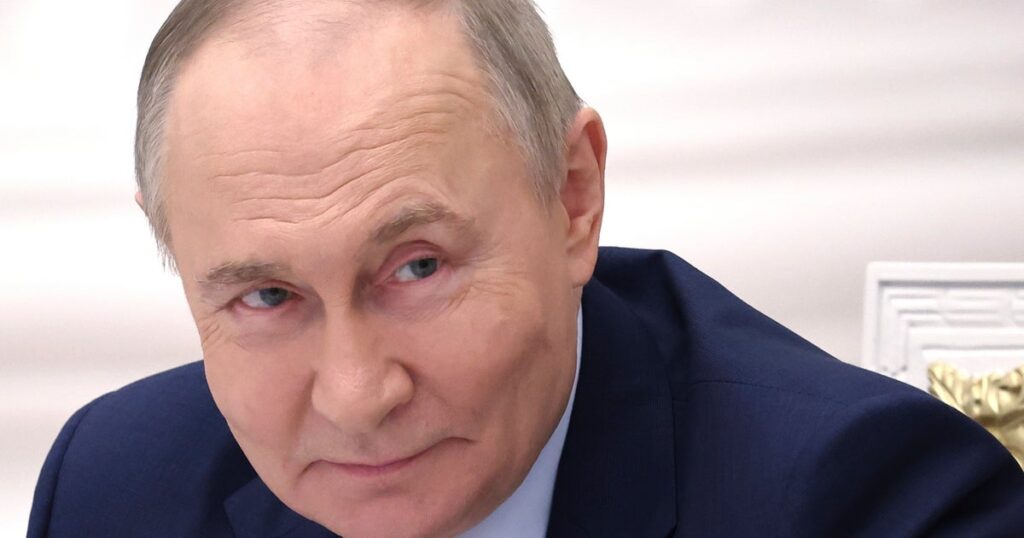Reevaluating the Dynamics of Ukraine Peace Negotiations and NATO Expansion
Introduction: The Core Conditions for Peace
Recent disclosures from three Russian sources involved in high-level negotiations reveal that President Vladimir Putin’s stance on ending the Ukraine conflict hinges on specific assurances from Western nations. Central to these conditions is a formal commitment from Western leaders to halt NATO’s eastward expansion and to ease certain sanctions imposed on Russia. These demands underscore Moscow’s persistent view that NATO’s growth threatens its national security and regional influence.
Global Leaders’ Perspectives and Recent Developments
U.S. President Donald Trump has consistently expressed a desire to resolve what he describes as Europe’s most severe conflict since World War II. Over the past week, Trump has voiced increasing frustration with Putin, warning that the Russian leader’s refusal to engage in meaningful ceasefire negotiations with Kyiv is akin to “playing with fire.” Trump’s comments come amid ongoing military advances by Russian forces in Ukraine, which have heightened tensions and complicated diplomatic efforts.
Following a lengthy discussion with Trump last week, Putin indicated a willingness to collaborate with Ukraine on a formal document outlining the parameters of a potential peace agreement, including the timing of a ceasefire. Russia is currently preparing its version of this memorandum but has not specified how long the process might take. Meanwhile, Kyiv and European nations accuse Moscow of stalling tactics as Russian troops continue their offensive in eastern Ukraine.
Putin’s Strategic Goals and Negotiation Stances
A senior Russian official, speaking anonymously, revealed that Putin is prepared to pursue peace but not at any cost. The Kremlin’s primary objective remains the securing of a “written” guarantee from Western powers that NATO will not expand further eastward-specifically, a formal pledge to exclude Ukraine, Georgia, Moldova, and other former Soviet republics from membership. This demand reflects Moscow’s longstanding concern over NATO’s perceived encroachment on its traditional sphere of influence.
In addition to the NATO-related stipulation, Russia’s broader demands include the lifting of certain Western sanctions, resolution of frozen Russian assets held abroad, and assurances for the rights of Russian speakers within Ukraine. These conditions highlight Moscow’s view that the conflict is rooted in Western geopolitical ambitions and NATO’s expansionism.
Potential Outcomes and Escalation Risks
The same sources suggest that if Putin perceives that a diplomatic resolution is unattainable under his preferred terms, he might escalate military efforts to demonstrate that “peace tomorrow will be even more painful.” This indicates a possible shift toward increased hostilities if negotiations falter. Russia’s leadership has repeatedly emphasized that any peace agreement must address what they term the “root causes” of the conflict-namely, NATO’s expansion and Western support for Ukraine.
Kyiv maintains that Russia should not have veto power over Ukraine’s NATO aspirations. Ukraine seeks robust security guarantees from the West to deter future Russian aggression, emphasizing the importance of military support and alliance commitments. Western NATO members have reaffirmed their “open door” policy, dismissing Moscow’s demands as unacceptable. A NATO spokesperson declined to comment on the ongoing negotiations.
Historical Context and Current Military Situation
Russia’s invasion of Ukraine commenced in February 2022, following years of conflict in eastern Ukraine involving Russian-backed separatists. Moscow currently controls approximately 20% of Ukrainian territory, including Crimea, which it annexed in 2014, and significant portions of the Donbas region. Despite recent advances, the war has exacted heavy tolls on both sides, with substantial casualties and economic strain.
Economically, Russia faces challenges such as inflation, labor shortages, and declining oil prices-its economic backbone-further complicating its military and diplomatic strategies. In January, reports indicated that Putin was increasingly concerned about the economic distortions caused by the war, which threaten long-term stability.
International Reactions and Future Prospects
U.S. and European leaders have consistently framed the conflict as an imperial-style land grab by Russia, vowing to support Ukraine’s sovereignty and defeat Russian forces. Putin, however, characterizes the war as a pivotal moment in Moscow’s effort to reassert influence and counteract what he perceives as Western humiliation following the Soviet Union’s collapse in 1991.
NATO’s expansion has been a contentious issue, with the alliance emphasizing that it poses no threat to Russia. Nonetheless, Moscow views NATO’s growth as a direct challenge, especially after the 2008 Bucharest Summit, where Ukraine and Georgia were promised future NATO membership. Ukraine’s formal bid for NATO membership was reaffirmed in 2019, further fueling Moscow’s security concerns.
In 2021, Moscow proposed a draft treaty with NATO, seeking to restrict the alliance’s expansion, including Ukraine’s accession. Western officials rejected the idea of a veto on NATO’s growth, citing the alliance’s open-door policy rooted in collective security principles.
Historical Promises and Current Disputes
Russia’s insistence on a written pledge against NATO expansion stems from historical mistrust. Moscow claims it was misled after the fall of the Berlin Wall, when U.S. assurances in 1990 suggested NATO would not expand eastward-a promise that Moscow believes was broken. U.S. officials, including former CIA Director William J. Burns, acknowledge that such verbal commitments were never formalized, especially given the geopolitical context of the early 1990s.
Conclusion: The Road Ahead
As the conflict persists, the prospects for a diplomatic resolution remain uncertain. The increasing rigidity of positions from both Moscow and Kyiv suggests that, without significant concessions, a peaceful settlement may be elusive. Meanwhile, the broader implications for European security and NATO’s future remain at the forefront of international discourse, with some analysts warning that a Russian victory could embolden further aggression, potentially threatening NATO itself.
The Broader Impact
The ongoing war has prompted Finland and Sweden to accelerate their NATO accession processes, marking a significant shift in European security architecture. The conflict underscores the importance of diplomatic engagement, strategic patience, and the need for clear security guarantees to prevent further escalation into a wider global conflict.
Reporting by Reuters in Moscow; editing by Daniel Flynn

